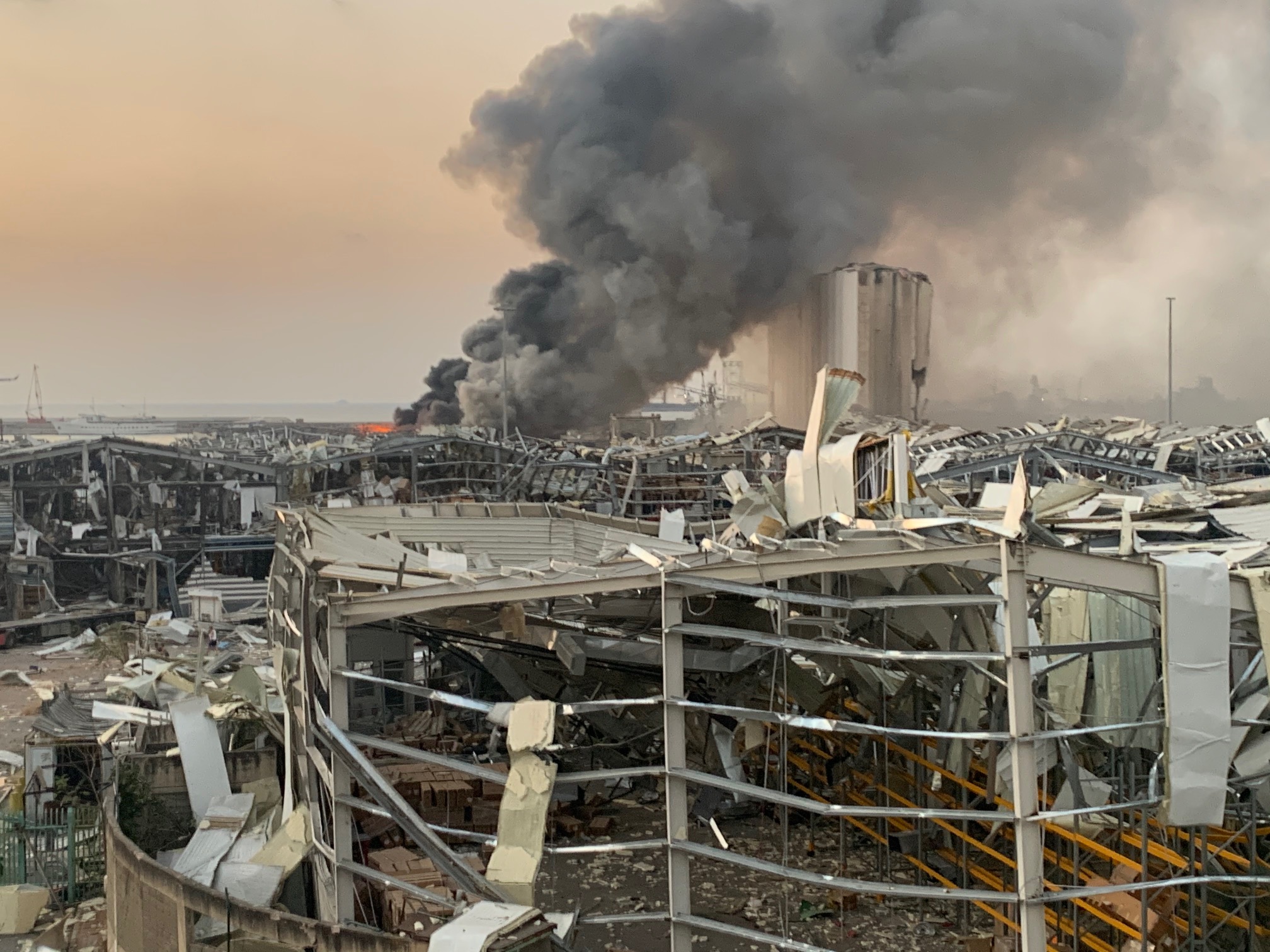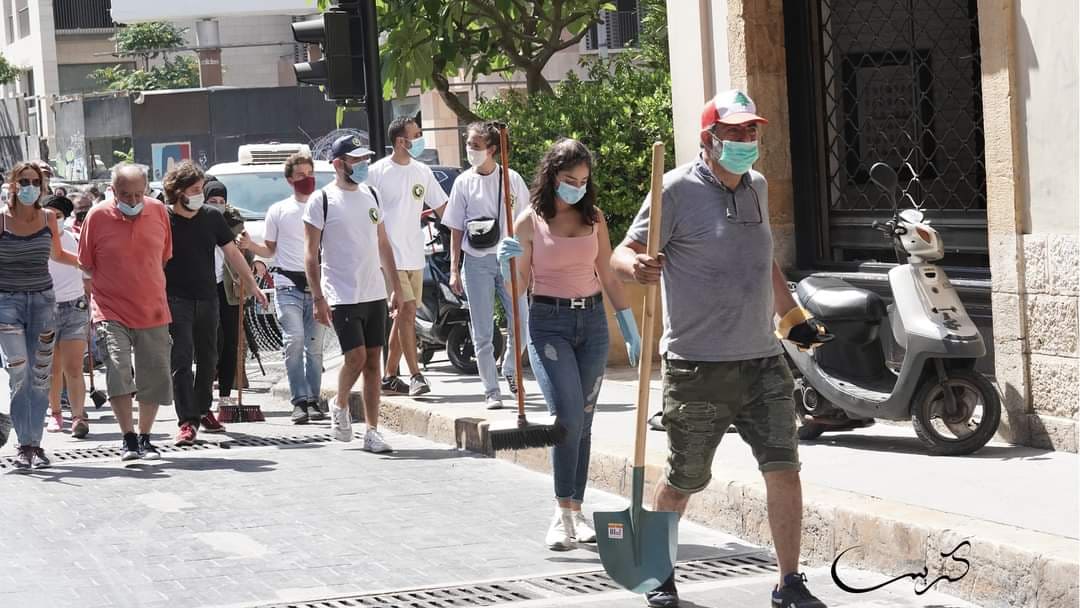A former Winnipeg woman who now lives in Beirut, Lebanon as part of her work with Mennonite Central Committee (MCC) is helping her neighbours pick up the pieces following a devastating explosion last week. She's also asking for prayers and help.
Stephanie Dyck is the Disaster Response and External Grants Coordinator with MCC for Lebanon, Syria, and Iraq. She's called Beirut home for the past two years.
Her Experience in the Blast
"It was shortly after I finished my workday. I had gone to the grocery store near my home to buy ingredients to make a birthday cake for one of my colleagues."
Dyck was able to get a little bit of notice before the big blast rocked the city.
 (Supplied by Care Canada)
(Supplied by Care Canada)"Just before 6:00 p.m. in a WhatsApp group one of my friends shared a photo of something on fire at the port of Beirut. From where I was, it was about 1.2 km away. But none of us really knew what was going on."
"It was only about 10 minutes later that the ground started shaking. The front of the grocery store I was in was all glass, and all of that glass exploded. Obviously there was a very large bang, people panicked. I abandoned my grocery cart and tried to figure out what the best next step would be."
Thankfully, Dyck was more in shock than physically hurt.
"I almost immediately received a message from one of the country directors for MCC in Beirut asking everyone to check in because there had been an explosion outside their house."
The atmosphere was one of shock initially, she says, as the staff started to figure out that it wasn't multiple explosions but one big one.
"At that point, it was unclear whether it was multiple simultaneous explosions or one explosion. My next step was to get somewhere safe."
Dyck's residence is not far from the grocery store.
"I decided to exit the grocery store and walk home. I expected in leaving that at some point in my walk I would reach the edge of the debris, but that never happened. Every street I looked down was the same, smoke-filled and glass-filled."
Over 200,000 people in Beirut are homeless or living elsewhere while the debris and mess slowly get cleaned up.
"My home is relatively unscathed compared to many of my friends. Most of my friends live between me and the port. Maybe 30-40% of my windows were blown out."
 (Supplied by World Vision Canada)
(Supplied by World Vision Canada)The Aftermath
Dyck says, "There were many needs in Lebanon before this explosion due to an economic crisis. There was also a food crisis that increased by 150 per cent since October."
The value of the Lebanese currency also dropped by 80 per cent.
"This explosion has caused people to have so much despair and loss. Prayers for this country would be much appreciated."
Anyone wanting to donate will have it matched, up to $2 million.
"The best thing to do would be to donate to the Humanitarian Coalition or one of its partners before August 23. The government of Canada is matching any of those donations," says Dyck.
"There are already teams on the ground doing assessments, helping with immediate distribution with food and those kinds of immediate supports. Those donations will help with the months to come."
When a crisis comes, faith plays a big role, as Dyck talks about the spiritual atmosphere in the area.
"We know God is here. Pray that people would feel that, and feel supported by the international community, and those of us that are trying to help in any way we can."
 (Supplied by World Vision Canada)
(Supplied by World Vision Canada)Working with Mennonite Central Committee
"I've really enjoyed working for MCC. In some ways, it's 'in my blood' so to speak. MCC is in its centennial year. It started in 1920 in response to a famine in what is now the Ukraine. Some of my relatives would have been helped by MCC at that time. I've grown up with stories of MCC."
When it comes to the way they offer aid, Dyck says, "I really support the way in which it goes about its work in the world."
This is not the first time Dyck has lived in the Middle East, although she was born and raised in Winnipeg. She's also worked in Egypt over a two-year period.
"I do plan on staying in Lebanon. We'll be continuing the work we already have been doing, but also trying to respond in whatever way we can alongside our partners, the Humanitarian Coalition."
While certain needs are immediate, the long-term care and help for the Lebanese in the wake of this explosion is still unclear.
"At this moment we're all just trying to sort out what happened to us."












